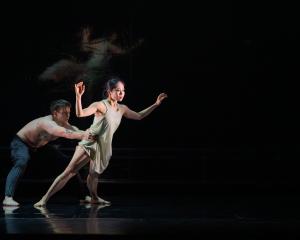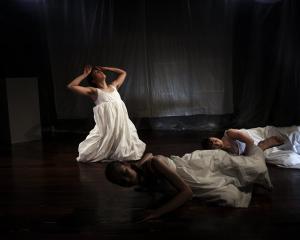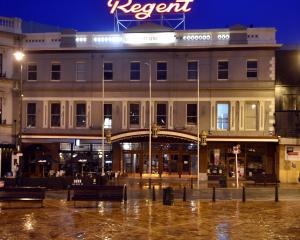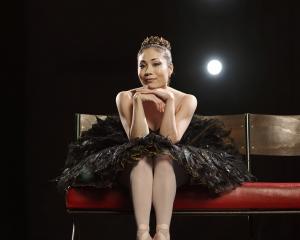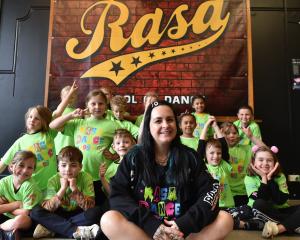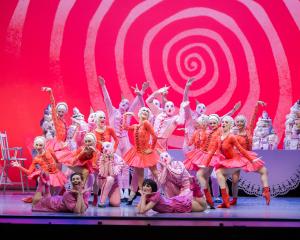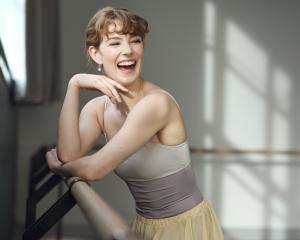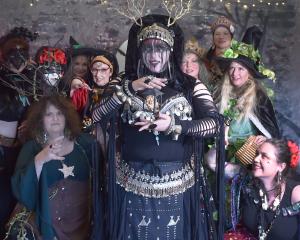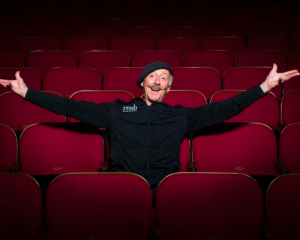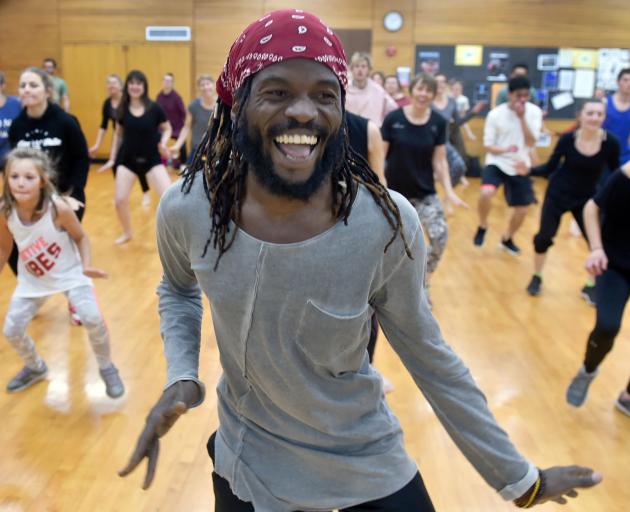
Hip-hop, African movement, breakdance, dancehall - Antonio Bukhar does it all, but his biggest passion is the social change dance can create.
''In the world there are so many situations which divide us, so it is quite important to have as many spaces that celebrate diversity as possible,'' this year's Caroline Plummer Fellow in Community Dance says.
Bukhar, who rose to fame in his home country of Uganda for his impressive breakdance and hip-hop abilities, mixes performing with various projects aimed at getting people involved in dance.
''Having a space that brings as many diverse people as possible [together] is good for the community. Your appreciation of yourself and others is more because there is a level of relationship or understanding.''

''Making it open and not limited to skill and encouraging as many young people as possible, there was so much bridging of gaps''.
That was highlighted by the founders. Bukhar comes from a strong church background. Then there was a colleague who was Muslim; another was a dancer from Ireland and another member was a high school dropout.
''All those differences when we began to dance didn't matter.''
That success led Bukhar to travel to Europe dancing which resulted in him doing more choreography.
He co-founded Kuenda productions in 2014 with the idea of collaborating with different artists across continents.
While Ugandan relationships with the West often relied on the West giving to Uganda, Bukhar wanted to develop a space where artists were collaborating ''eye to eye''.
Alongside that he developed what he calls his ''baby project'' Arts 2 Hearts where he goes into schools in Germany and the Netherlands as part of a cultural exchange.

''The magic is beyond the classroom. It's eating with them, playing with them; giving them this hands-on interaction with someone from Africa. In the process it breaks a lot of stereotypes of what they thought about Africa or Uganda in general.''
Bukhar's interest in dance came about, like many, through the music of Michael Jackson.
''That was my initial spark for dance.''
Then as he went through the school system he was exposed to Congolese music and traditional dance.
In high school, popular culture featuring American hip-hop artists such as Usher had an influence.
In 2001 he performed for the first time in public which hooked him on the excitement of dance. He was tagged the ''dance wizard'' in an article.
''I'd danced a lot myself but had not shared it with people. I hadn't realised the reaction of people. I was super overwhelmed.''
From there he began choreographing for a church group and went on to win a national dance competition called Hotsteps.
''Then I started going on talent shows to see how I could use it to earn a living.''
That led to work doing command shows, dance videos and starting his own dance company.
''In Uganda travelling is a big thing. A lot of people didn't see me as being serious about what I do, even in my family. Then when I started travelling they were like, OK, this is becoming a serious thing.''
He has mixed his work with community initiatives while his own dance is mostly hip-hop and breakdance for the ''wow'' factor.
''Sometimes I'm a teacher for six months, then sometimes I'm working on stage in theatres.''
He gets some of his greatest satisfaction from working in the community space - a project with Alzheimer's sufferers in the Netherlands - stands out.
''The satisfaction that came from that is more than the satisfaction I get from performing on stage.''
In 2017 he received the Pina Bausch Fellowship at the University of Auckland.
''For me coming from a purely street background or communal practice background, I was curious about the academic perspective.''
His career experience in dance meant he was not intimidated by academia as he knew he brought something to the table.
The fellowship gave him the opportunity to go into an academic setting which he had not experienced before to see where his practice fitted and also to learn from the academic perspective.
''It was a pretty interesting experience. I wasn't only receiving, I was giving in an academic setting which before that I wasn't too familiar with.''
He also learnt that he found it quite effective to have an established work space.
''I'm always the one who stays the latest. I can be here till midnight. I'm a night person.''
A highlight from that opportunity was publishing his first article with Dr Rose Martin Difference in Dancing: Two Dance Educators Reflect on Difference in the Dance Studio.
''Publishing an article was special for me, someone who does not have that background.''
He returned to Auckland last year to be a guest choreographer and it was while giving a presentation in Wellington he heard about the Plummer fellowship at the University of Otago.
So he again returned to New Zealand in March to begin the fellowship at Otago with the aim of continuing his work bridging gaps between different communities through dance.
He began by contacting as many different dance and community groups as he could, even joining a local football team.
His Tuesday classes include people from salsa and swing backgrounds, students from the university and general members of the public looking for an inclusive space.
They range widely in age and come from a variety of ethnicities and nationalities.
''I like the idea of bringing together all these people who do not usually cross paths because of the boxes set by society.
''It's celebrating diversity and inclusivity - changing the definition of dance. It's not about how high you can kick your leg, it's about bonding and creating relationships.''
In the sessions he uses a mix of afro-fusion and dance hall which allows beginners to express themselves while also enabling the experienced to be challenged.
''I make them less technical but you can get technical with them as well.''
After each class he gets participants to write down how they felt about the session.
''You realise everyone's outcome is different. For some it is just fun, others it's a workout. People come for different reasons.''
Reading the feedback from his sessions gave him a ''feeling of a calling''.
As part of his fellowship he is organising a dance performance called Ffenna, which means together, involving dancers from different groups and backgrounds.
He is hoping it will attract a diverse audience who will also be exposed to different types of dance.
''Bridging the gaps between audiences is also a goal of Ffenna.''
Bukhar is hoping more than 50 people will take to the stage.
''It sounds really interesting in my head. I'm hoping in practice we'll achieve it just the way I envisage.''
He only hopes the cold weather does not impact on people's enthusiasm too much.
''For I'm most worried about how it changes the mood of people. It feels like it takes much energy to elevate the energy.''
Living in New Zealand has been an interesting experience for someone whose only experience of Western culture had been Europe.
''I was touched by how friendly people are here. They say thank you to the bus driver. That for me was a bit strange because I had framed this idea about the Western world after being in Europe where people are more closed off.''
Visiting Queenstown for the first time also opened his eyes to nature in way they never had before.
A city boy at heart, Bukhar now admits New Zealand has pushed his boundaries when it comes to the outdoors.
He leaves Dunedin in September and heads home to Uganda for a couple of weeks before he goes to perform in a community dance festival in Portugal.
''I have family in Uganda so I hope to return there to spend a bit more time.''
To see
Ffenna ’19, Dance Theatre, Castle 1 Lecture Theatre, University of Otago, August 24.


